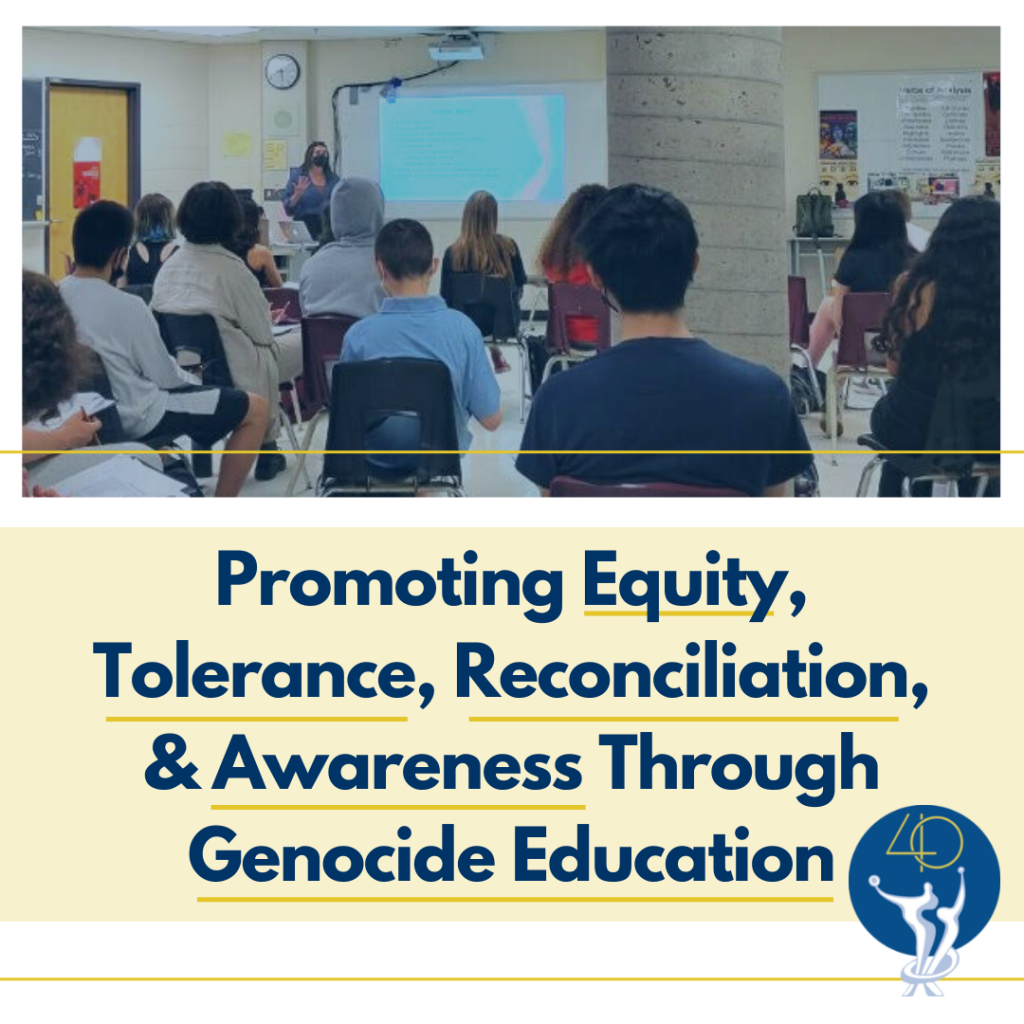
The Zoryan Institute developed and launched its Promoting Equity, Tolerance, Reconciliation and Awareness Through Genocide Education Program in the Spring of 2022. The program, initially funded by the Ontario Ministry of Education provides secondary school students at the grades 10 to 12 levels with a foundational understanding of the numerous, complex, and often emotional issues related to crimes against humanity and genocide.
Each presentation delivered through this program opens with an interactive discussion introducing human rights and genocide, and explores select cases of genocide, such as the Armenian Genocide, the Holocaust, the cultural genocide of the Indigenous Peoples of Canada, among others, using a comparative and multidisciplinary approach. The use of first-hand testimonies from those who experienced genocide during the program humanizes the impacts of genocide in a sensitive and age-appropriate manner and allows students to compare and understand commonalities in the processes and experiences of genocide, and better understand the universality of the phenomenon. By raising awareness about about the multifaceted impacts of genocide, including intergenerational trauma, cultural destruction, mass population displacements, etc., and connecting them to students’ own experiences and responsibilities as citizens, this presentation helps facilitate tolerance, intellectual dialogue, and respect for human rights and dignity.
What the presentation includes:
Presentations will be delivered by graduate students and early career scholars trained by the Institute in the field of Genocide and Human Rights Studies. Each presentation will be approximately 70 minutes long. Each presentation will open with an introduction to human rights and genocide, with examples from select cases of genocide, such as the Armenian Genocide, the Holocaust, and the cultural genocide of the Indigenous Peoples of Canada. The presentations will be followed by viewing select scenes from the animated documentary, Aurora’s Sunrise, based on the Zoryan Institute oral history interview with Armenian Genocide survivor, Aurora Mardiganian. These scenes will be analyzed alongside excerpts from Anne Frank’s diary, and an audio-visual testimony of a residential school survivor from the Legacy of Hope Foundation. By analyzing excerpts from powerful first-hand survivor testimonies and literature in a comparative and interdisciplinary manner, high-school level students are able to understand and process the information presented and relate it to their lives and to various communities within the Canadian context, with a special consideration of Indigenous Peoples of Canada.
Why genocide education is important:
Genocide education is key to shaping better-informed citizens who are committed to promoting equity and tolerance. Students will not only benefit from increased knowledge and understanding of gross violations of human rights and genocide and their impacts, but by teaching multiculturally and multiethnically diverse Ontario secondary school students about this subject, and demonstrating that genocide is a shared human experience, this program will help to facilitate empathy, intellectual dialogue, and respect, and provide a unique opportunity for students to develop a more comprehensive understanding of their individual and collective histories. For students whose families and communities have directly experienced genocide or other gross violations of human rights, and students who are descendants of perpetrator groups, the program provides an opportunity to foster dialogue and bring about a common understanding of history between adversary groups. In the process, this may help promote reconciliation and address intergenerational trauma.
What students have had to say about the program:


What teachers have had to say about the program:

